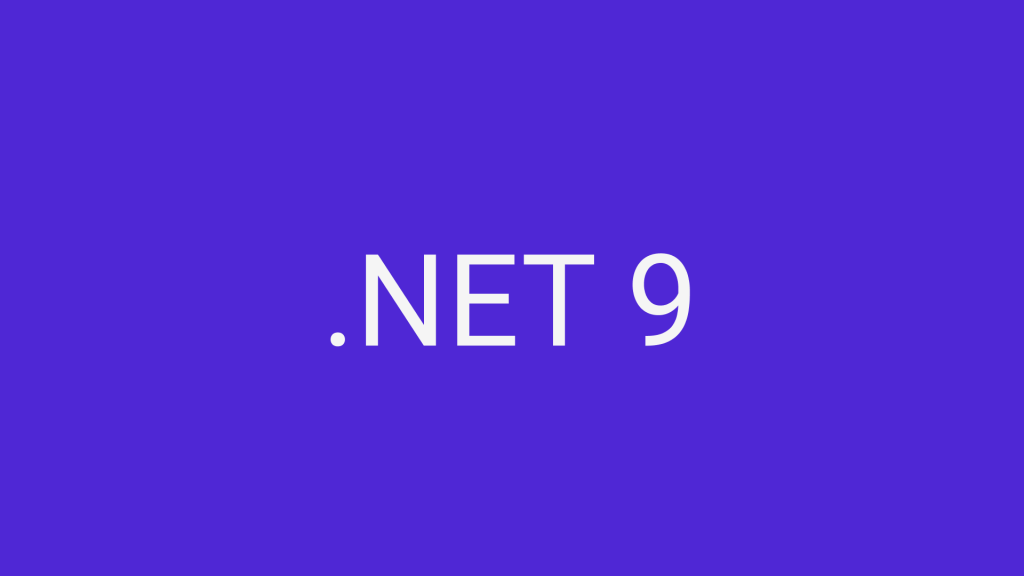Table of content
In fact, with a variety of possible applications, education serves as a terra incognita for AI to reveal its potential: according to a report by HolonIQ, the AI education market is expected to grow at a compound annual growth rate (CAGR) of 45% and reach $6 billion by 2025.
In this article, we will uncover the benefits of implementing AI software in the education process, overview the possibilities AI brings for every actor within the process, and take a look at what can be expected in the following years to come out.
The Benefits of AI in Education
To understand AI’s impact, let’s try to express it through the lens of ultimate good. What does it make better?
Better Results from Learning
One of AI’s primary benefits in education is its potential to improve learning outcomes. AI algorithms can analyze vast amounts of data to identify patterns and insights that would be impossible for humans to discern. This capability allows educators to pinpoint areas where students struggle and tailor their teaching strategies accordingly.
For instance, AI-powered platforms can provide real-time feedback on student performance, helping educators make data-driven decisions to enhance learning outcomes. By identifying gaps in knowledge and offering targeted interventions, AI ensures that no student is left behind.
Making Learning Tailored
AI’s ability to deliver personalized learning experiences is perhaps its most significant contribution to education. Traditional classroom settings often follow a one-size-fits-all approach, which can disadvantage students who learn at different paces. AI addresses this issue by creating customized learning paths based on individual student needs and preferences.
For example, AI-driven educational platforms like Khan Academy and Coursera use machine learning algorithms to recommend tailored content and resources to each student. This personalized approach not only enhances engagement but also fosters a deeper understanding of the subject matter.
Streamlined and Effective Administration
Beyond the classroom, AI is revolutionizing administrative tasks in educational institutions. Educators report that AI applications in administrative tasks can save them approximately 20-30% of their time, allowing them to focus more on personalized teaching and student engagement. From automating routine processes like grading and attendance tracking to optimizing resource allocation, AI streamlines operations and frees up valuable time for educators and administrators.
AI-powered tools can also assist with recruitment and admissions processes. By analyzing applicant data, these tools can help institutions identify the most promising candidates, ensuring a more efficient and effective admissions process.
AI Tools for Educators and Students
Overview of AI-Based Educational Platforms
The proliferation of AI-based educational platforms has opened up new possibilities for both educators and students. These platforms leverage AI technologies to enhance teaching and learning experiences in various ways.
- Adaptive Learning Platforms: Tools like DreamBox and Smart Sparrow utilize advanced AI algorithms to analyze student performance data and dynamically adjust the difficulty level of content in real-time. This continuous feedback loop ensures students are always challenged appropriately, enhancing their learning experience and helping them to progress at their own pace.
- Intelligent Tutoring Systems: Platforms such as Carnegie Learning and MATHia offer highly personalized tutoring based on the specific needs of each student. By analyzing individual performance metrics, these systems provide targeted support and customized practice exercises, helping students to overcome their unique challenges and achieve their academic goals more effectively.
- Automated Grading Systems: AI-powered grading tools, like Gradescope, streamline the grading process for educators by automating much of the work. These systems can handle large volumes of assessments quickly and provide consistent and unbiased evaluations. This not only saves teachers valuable time but also ensures that students receive timely and fair feedback on their work.
Case Studies of Successful AI Integration in Classrooms
Several educational institutions have successfully integrated AI into their classrooms, yielding impressive results. Let’s explore a few case studies:
- Case Study 1: Georgia State University (GSU)
GSU implemented an AI-based chatbot named “Pounce” to assist with student inquiries and support services. The chatbot uses natural language processing to provide accurate and timely responses, reducing the burden on administrative staff. As a result, GSU reported a significant increase in student engagement and satisfaction.
- Case Study 2: Squirrel AI Learning
Squirrel AI Learning, a leading EdTech company in China, utilizes AI algorithms to deliver personalized learning experiences to students. By analyzing student data, the platform identifies knowledge gaps and provides tailored content to address them. This approach has led to improved academic performance and higher retention rates.
How Can AI Help Different Actors in the Educational Process?
School and Universities Administration
One thing we know about school’s and universities administration is that they work with an enormous amount of multifaceted data. This includes the lists and statuses of students, curriculum, activities and budgets – just to get started. The way AI makes administrations’ work more effective and streamlined is by automating routine tasks they usually have plenty of, working with data, and providing data-based insights that later help make better decisions regarding the educational process.
For example, AI-powered analytics platforms can help administrators track student enrollment trends, predict resource needs, and optimize course schedules. By leveraging AI, educational institutions can allocate resources more effectively, reduce operational costs, and enhance the overall student experience.
Professors and Tutors
As for teachers, they gain powerful tools to enhance their educational practices. AI-powered platforms can analyze student performance data, identify areas for improvement, and recommend personalized interventions.
Additionally, AI-driven virtual assistants can assist educators with administrative tasks, such as grading assignments and managing student records. This automation frees up valuable time for educators, allowing them to focus on delivering high-quality instruction and fostering meaningful student interactions.
Students
For students, artificial intelligence offers personalized learning experiences that cater to their unique needs and preferences. AI-powered platforms can adapt content and resources based on individual learning styles, ensuring a more engaging and effective learning journey. After all, studies indicate that AI-powered tools can enhance student retention rates by up to 27% and improve learning outcomes by 25%.
One more useful thing AI-driven tutoring systems provide are targeted support and practice exercises that help students overcome challenges and achieve their academic goals. With AI, students can access on-demand assistance, receive real-time feedback, and track their progress over time.
Does This Mean Students Could Be Taught by AI?
While AI has the potential to enhance teaching and learning experiences, it is unlikely to replace human educators entirely. Instead, AI serves as a powerful tool that complements and supports the efforts of teachers and tutors.
Actual professors and tutors bring empathy, creativity, and critical thinking skills that are essential for fostering a holistic learning experience. AI, on the other hand, excels at analyzing data, personalizing content, and automating routine tasks. Together, human educators and AI can create a dynamic and effective educational ecosystem that benefits all stakeholders.
Challenges and Ethical Considerations
Addressing Concerns About Data Privacy and AI Bias
As AI becomes more prevalent in education, concerns about data privacy and AI bias must be addressed. AI systems rely on vast amounts of data to function effectively, raising questions about how student information is collected, stored, and used.
To ensure data privacy, educational institutions must implement robust security measures and adhere to strict data protection regulations. Transparency is also crucial, as students and parents should be informed about how their data is being used and have the option to opt out if desired.
AI bias is another critical issue that must be addressed. Biased algorithms can perpetuate existing inequalities and negatively impact student outcomes. To mitigate bias, AI developers must prioritize fairness and inclusivity when designing algorithms. Regular audits and testing can also help identify and rectify biases in AI systems.
The Role of Educators and Policymakers in Ethical AI Use
Educators and policymakers play a vital role in ensuring the ethical use of AI in education. They must establish clear guidelines and best practices for AI implementation, prioritizing student welfare and equity.
Policymakers should collaborate with AI experts, educators, and other stakeholders to develop comprehensive frameworks that address ethical considerations and promote responsible AI use. Continuous professional development and training for educators are also essential to ensure they are equipped to navigate the evolving AI landscape.
Future Trends and Opportunities
Predictions for AI’s Future in Education
With AI’s everyday progress, some of its features as a tool helpful for education will come to fruition. In the following decade, we can expect the following:
- Increased Personalization: AI will continue to refine and enhance personalized learning experiences, tailoring content and resources to meet individual student needs more effectively.
- Enhanced Collaboration: AI-powered tools will facilitate collaboration among educators, students, and parents, fostering a more connected and supportive learning environment.
- Data-Driven Insights: AI will provide educators and administrators with deeper insights into student performance and behavior, enabling more informed decision-making and targeted interventions.
Opportunities for Innovation and Improvement in the Field
The integration of AI in education presents numerous opportunities for innovation and improvement. Educational institutions can leverage AI to develop new pedagogical approaches, enhance student engagement, and optimize resource allocation.
EdTech startups and entrepreneurs have a unique opportunity to create cutting-edge AI-powered solutions that address the evolving needs of the educational sector. By focusing on student-centered design and ethical considerations, innovators can drive meaningful change and contribute to a brighter future for education.
Conclusion
AI is revolutionizing the way we teach, learn, and manage educational institutions, and its transformative potential can’t be denied today. It lets students and professors concentrate on learning itself while simultaneously making it easier for the school as well. While things like ethical concerns remain on the table, the mission of educators worldwide is still evident: in education, AI must be grown to help.
Let Devox help you create a custom and fully tailored system that will take into account your students’ preferences, your schooling style and specifics, and one that will generally help you deliver the promise of education better. Contact our team to discover what can we do for you.












